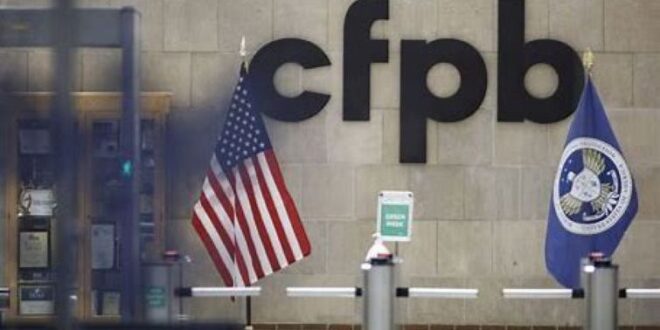In a surprising move, the newly appointed head of the Consumer Financial Protection Bureau (CFPB) has suspended the agency’s funding and ongoing activities, sparking debates over the future direction of the financial watchdog. The decision marks a significant shift in leadership priorities and raises questions about the CFPB’s role in regulating banks, lenders, and financial institutions.
Regulatory Freeze and Policy Shift
The CFPB, established in 2010 to protect consumers from financial misconduct, has been a powerful regulatory body overseeing credit cards, mortgages, and payday loans. However, the new director has placed a temporary hold on key initiatives, including pending investigations, enforcement actions, and regulatory proposals. Sources suggest this move is part of a broader review of the agency’s policies and funding structure.
While some view the suspension as a necessary reassessment of CFPB’s regulatory scope, critics argue that it could weaken consumer protections and leave financial institutions unchecked.
Funding Controversy and Legal Challenges
One of the most contentious aspects of this decision is the suspension of CFPB’s funding, which has been a legal battleground in recent years. Unlike most federal agencies, the CFPB is funded directly by the Federal Reserve rather than Congress—a structure that has faced multiple legal challenges, with opponents arguing it lacks proper oversight.
The new leadership’s decision to halt funding could be a strategic move to align with recent court rulings questioning the agency’s financial independence. If the funding mechanism is ultimately altered or revoked, it could significantly reshape how the CFPB operates in the future.
Impact on Consumers and Financial Institutions
With funding and regulatory actions on pause, consumers and financial institutions alike are left in a state of uncertainty. Key consumer protection initiatives—such as crackdowns on predatory lending, credit reporting disputes, and deceptive banking practices—may be delayed or abandoned. On the other hand, financial firms may welcome a break from aggressive oversight and fines.
Industry analysts are watching closely to see whether this pause leads to a broader restructuring of the CFPB or if it is simply a temporary adjustment under new leadership.
The decision to suspend funding and activities signals a potential shift in the CFPB’s role, but the full impact remains unclear. Will this lead to a rollback of consumer protection measures, or is it a short-term recalibration of the agency’s approach?
With lawmakers, consumer advocates, and financial institutions weighing in, the future of the CFPB is likely to remain a hot-button issue in Washington. The coming months will determine whether the agency emerges stronger, restructured, or significantly weakened under its new leadership.
 Business Sandesh Indian Newspaper | Articles | Opinion Pieces | Research Studies | Findings & News | Sandesh News
Business Sandesh Indian Newspaper | Articles | Opinion Pieces | Research Studies | Findings & News | Sandesh News



